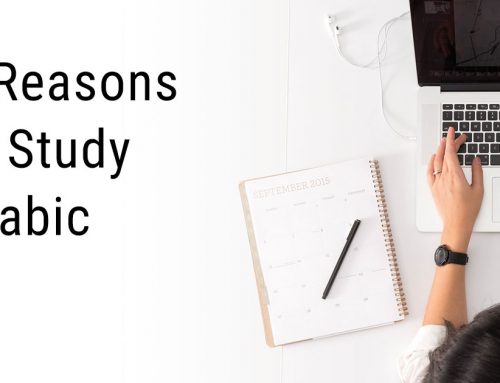[vc_row][vc_column][vc_column_text]When you’re learning a new language, it’s easy to totally fixate on just the grammar and vocabulary without really developing your pronunciation. Obviously, the grammar and vocabulary are extremely important and necessary parts of the process, but if you really want to master a language, developing your accent is just as important.
Why?
Because working on your Arabic pronunciation from the start can increase your ability to hear and understand the words that native speakers are using. In other words, it can help you speak and hear the language better.
And, let’s face it, if you want to impress a native speaker, it’s going to be with your accent, and not the number of words you know.
How to Start Learning Arabic Pronunciation
Pronunciation is one part of language learning that simply can’t be done straight out of a book.
Yes, you can look at a pronunciation guide and get a general feel for the sounds, but you really need to hear the words and practice speaking with a native speaker to really develop your ear for the language and your ability to connect the words you see with the ones you say.
There are a few simple guidelines for learning pronunciation that can help you get through this process.
- Tune your ears to the language “frequency”
There are a lot of different sounds and rhythms in Arabic that you may not be accustomed to in your native language. Even if you don’t have a deep vocabulary yet, start listening to different sources and start getting a feel for the characteristics of the language.
- Practice individual vowels and consonants
Once you have your ear properly tuned to the frequency, you’ll be able to hear when you’re matching the individual sounds.
It may seem extremely basic, but don’t settle for “close enough” here. Keep practicing, and remember that sounds may change based on how they’re used in different parts of speech and in different dialects.
- Go beyond the letters
Think about how many ways you can pronounce the letter “a” in English. You need to know these variations, but it can be hard to know how to use them in different words. When you learned the alphabet, you didn’t learn that “a” was pronounced these 5 or 6 different ways. You learned that “a” in “apple” was pronounced one way, “father” another way, and “way” a different way.
Practice different words, focusing on those that sound similar but have distinct (if subtle) differences.
- Listen to dialogue from a native speaker and parrot it back
Listening to and mimicking natural conversations can be extremely helpful. These kinds of exercises are different from repeating scripted phrases over and over again because it will give you a real taste of how words are pronounced by everyday speakers.
- Practice the new sounds the most
You’re going to experience a number of new sounds in Arabic that you’d probably don’t have to deal with in your native language.
You can focus on practicing words in pairs that sound similar, so you can start to pick up on subtle differences in the pronunciation.
There are also different dialects in Arabic, so eventually you will start to understand the differences and similarities there, too.
- Listen to the melodies of the words and sentences
When you’re learning a new language, you should take note that starts and stops, emphases, and inflections may come in different places that what you’re accustomed to hearing. There are patterns in how the sounds come together. Listen carefully and make sure you don’t get stuck on the patterns that are more common in your first language.
With everything else you’re trying to learn while you study Arabic for the first time, it can be tempting to tell yourself that you don’t need to focus on getting the pronunciation just right. At least not yet.
However, it can be extremely helpful to the overall language learning process to keep these tips in mind, because the sooner you start discovering the differences between your first language and Arabic, the sooner you’ll be able to start sounding like a real native speaker.
Sign up for a free lesson today to learn more about Arabic pronunciation![/vc_column_text][/vc_column][/vc_row]





